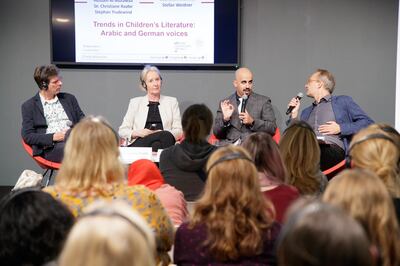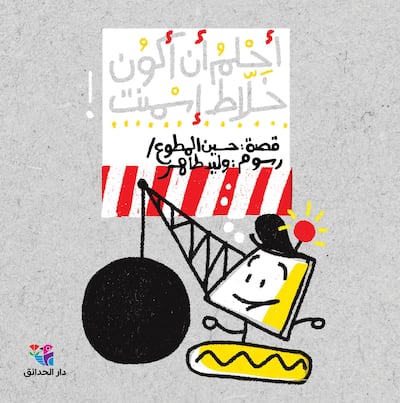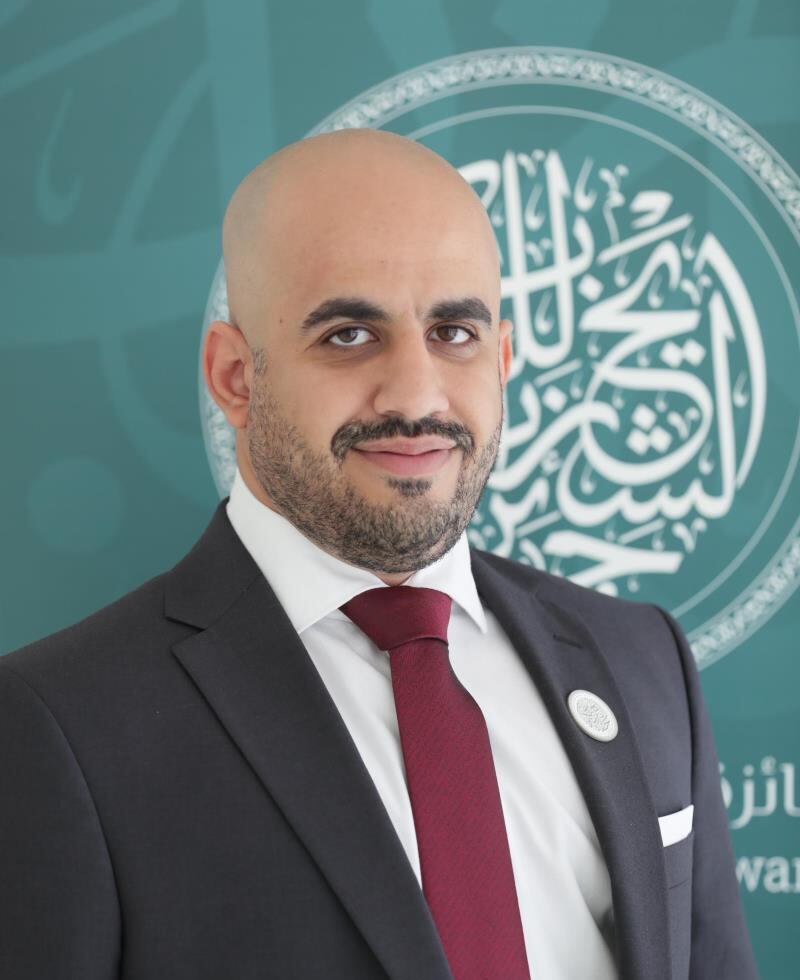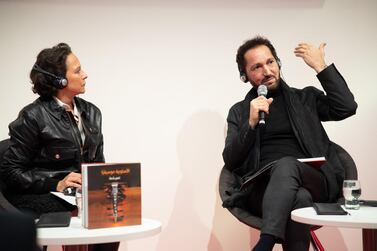Sometimes you have to go far from home to be appreciated.
It was the case for Kuwaiti children’s author Hussain Al Mutawaa, who was in Frankfurt this week to discuss his acclaimed work I Dream of Being a Concrete Mixer.
Published in Arabic last year, the picture book is a heart-warming tale of a young demolition truck, Haddam, who goes against the family business to fulfill his dream as stated in the title.
While the book may have received a respectful, yet cool reception at home, it was acknowledged as a quality piece of work by the Sheikh Zayed Book Award committee, which gave him the prize for children’s literature.
Children’s literature is not the bottom of literary chain
The acknowledgment gave Al Mutawaa all the motivation he needs to continue his creative path, which he admits, could be lonely at times.
Speaking before a packed Frankfurt Book Fair session on Thursday, October 17, in which he discussed the characteristics of Arabic children’s literature, Al Mutawaa says his style of writing doesn’t get the same respect as other fields.
“And I have already written a novel so I can tell the difference. The way I can describe it to you is almost like the way we view the medical profession, in that we place surgeons at the top and pharmacists at the bottom. That is a faulty way of thinking as the pharmacist has certain insights that the surgeon doesn’t it,” he says.
“This type of thinking comes from the way society views literature in general. And I can only speak as a Kuwaiti, but back home it is difficult in that there is not a lot of encouragement from organisations to encourage reading among children.”

A graduate in Arabic literature and philosophy from the University of Kuwait, Al Mutawaa’s first foray into writing was through winning a string of local short story and poetry competitions.
After the good local reception to his debut 2017 novel Turab, Al Mutawaa was content to potter around and work various jobs until the next idea came along.
The difference between children’s books and literature
The story of a young concrete mixer rebelling against family tradition came to him slowly while working in the Takween Library in Kuwait.
“While I was there I began to really take a keen interest in children’s literature,” he says. “I was reading a lot of works by the Australian writer Shaun Tan. His book The Red Tree moved me in a way I never experienced before. I also loved how children’s books appeal on a number of levels. They are built in layers where the story is at the heart, and the bigger issues are on top of each other.”

While the initial plot of I Dream of Being a Concrete Mixer is benign enough, the book delves into issues that strike at the heart of many families from the region. They range from family, respect and using construction and demolitions of building as metaphors for effective parenting.
The book’s light-hearted humour and colourful characters, which include other vehicles such as diggers and one chirpy bulldozer, disguises its plea to parents to nurture their children’s talents.
“And I think this kind of approach is what differentiates children’s literature from children’s books,” Al Mutawaa says. “While there is nothing wrong with them in general, children’s books are more concerned about teaching kids skills or behaviours. Children’s literature, on the other hand, is more about the story itself and how that gives birth to other subtle topics.”
Al Mutawaa has seen first-hand the joy and effect in seeing children delving into the deeper themes of children’s books.
“At the library, I would pay close attention to how the children reacted when we had story sessions,” he says. “Some respond first to the visuals of the story, others to how the story is presented by the narrator, while some immediately look for things that stand out. It is a beautiful and powerful thing to see that. It shows what this artistic field can offer to society.”
And the Arab reading market appetite for such stories is increasing. A particular driver of this growth is the Sheikh Zayed Book Award for children’s literature, which gives the winning title the kind of boost any author would dream off.
As for Al Mutawaa himself, the award gave him and other children’s writers in Kuwait the respect that has eluded them.
“A lot of cultural organisations from Kuwait reached out to me because of the award,” he says. “We are discussing developing programs to encourage reading amongst children. I immediately agreed, of course, as this is always what I wanted to do.”
More information on the 2019 Sheikh Zayed Book Award winners can be found on www.zayedaward.ae








